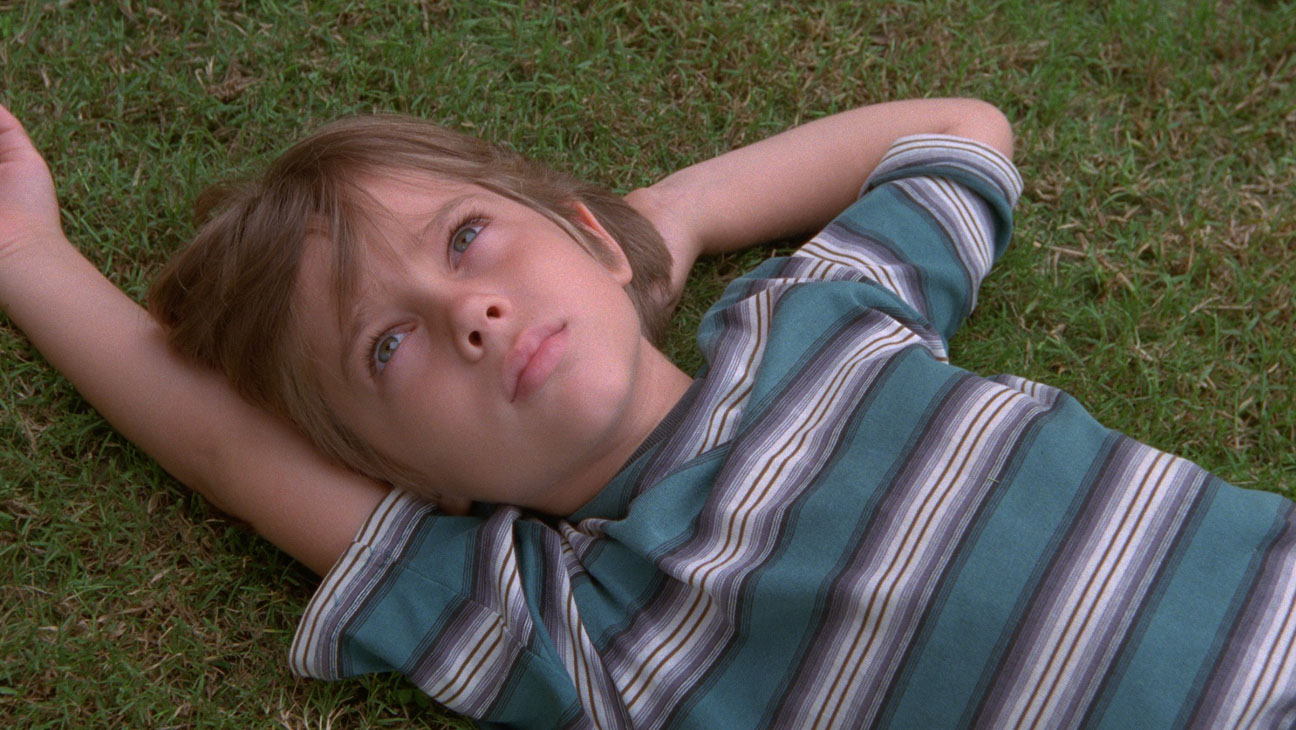
MPAA Rating: R | Rating: ★★★★½
Release year: 2014
Genre: Coming-of-Age, Drama Director: Linklater
Every few months, in a moment of whim and nostalgia, I’ll stop and look at the pictures and videos from the early days of our children’s lives. I recognize that having a 5- and 2-year-old doesn’t allow for many “early days” yet. Nevertheless, it always astounds me how much they have changed and grown in such a short period of time. Limbs and hair grow and expand. Motor and verbal skills transform in a matter of moments, from rolling-and-cooing to running-and-singing. The nature of time fascinates me. Time passes slowly and silently, treading constantly forward in a cycle from past to present, transforming our world in progress and decay. The book of Ecclesiastes says that God has placed eternity in the human heart, but in the meantime we are very time-bound beings. People grow, change, adapt, react, and mature in time. Richard Linklater’s fascinating and affecting experiment with Boyhood offers a unique picture of this progression through time. Over the course of twelve years, filming short scenes using the same actors portraying the same character, Linklater has created an authentic experience of seeing memories unfold on film. The film follows Mason (Ellar Coltrane) as he grows from a daydreaming 6-year-old into a quiet and artistic college freshman at age 18.
Boyhood portrays Mason as a silent observer of the world around him. Opening with an iconic shot of him staring into the clouds, he never loses this head-in-the-clouds mentality as he navigates the ups and downs of his childhood and adolescence. He doesn’t engage much, choosing to be a passive listener and spectator, surrounded by adults whose own decisions and advice drive his destiny forward through time. His mother (Patricia Arquette) tries to do her best as a single mom of two children, but continues to make poor choices regarding the men she marries and often seems overwhelmed by the cards life has dealt her. His father (Ethan Hawke) transforms from an impetuous wanderer and risk-taker into a mustachioed actuary (a business professional who deals with the financial impact of risk and uncertainty), eventually trading in the GTO for the minivan.
While both parents are mature adults with their own experiential notion of wisdom, both are often floundering in life. Mason observes later in his boyhood that his mom is just as confused as he is. His father reduces the entirety of the meaning of life as, “None of us know what we’re doing anyway. We’re all just winging it.” Mason is the quiet recipient of advice, wisdom, and unsolicited input from the adults in his life, adults who often don’t actually have their own lives together. Do this. Be that. Try this. Trust me. But Mason doesn’t seem to do much with their counsel, either with rebellion or devotion. He’s a fairly passive character who doesn’t much either right or wrong–he simply is, he just does, andBoyhood doesn’t seem interested to present him as anything further.
A related aside: one observation I’m pondering is this–Mason never cries in Boyhood, at least not that I can remember. For a young man who feels deeply and has a brooding artistic side, he seems strangely aloof to his own emotions, rarely laughing and (apparently) never crying throughout his entire adolescence. Even in powerfully emotional scenes where key characters are injured, either physically or emotionally, Mason remains ever the stoic. Why is this? If Boyhood is partly auto-biographical from Linklater and Hawke’s childhood experiences–both had divorced parents, and Linklater in particular has noted the biographical similarities–was this the experience the filmmakers wanted to express, a tear-less protagonist? It’s not just the tears; Mason simply doesn’t emote much at all, making him a somewhat intriguing character to observe, but not one to stir empathy. As an emotionally-driven man who experienced the ups and downs of my own boyhood, I recall many tears in my own experience, both from laughter and pain. Maybe I’m forgetting a crucial scene of pathos in Boyhood. If so, please remind me.
Boyhood is like a series of scenes that flash before one’s eyes in the moments immediately prior to death, one’s whole life in an immediate glance. Episodic and often with little context, each moment plays out with both ordinariness and profundity. Watching Boyhood is like opening up a stranger’s family photo albums and glancing through all the pictures, trying to make sense of the person’s life in the images. This can be both a beautiful and a boring exercise, and Boyhood is often both at once. It has its moments of insight and beauty, but by the third act of Boyhood, I was beginning to become fidgety from the tedium, hoping for a moment of catharsis that never fully came. I suppose real life is like that. Our personal narratives are a series of events, some more influential and transformative than others, yet simply a series of interconnected moments linked in time. Mason stares into the sky. Mason moves across the country. Mason gets a haircut. Mason walks and talks with a girl. Mason goes camping with his father. Mason talks in the car with his mother. These are everyday moments, but they are also unique scenes in a person’s story. The conversations, the unsolicited advice, the dramatic scenes–they are all moments etched in a person’s memory, and I can imagine that Boyhood is like a glimpse into the memory banks of an elderly Mason reflecting upon his past, much like The Tree of Life is a mediation on the memory of a Texas summer from the perspective of Sean Penn’s character. As Mason’s mother reflects upon her son as he leaves for college, “I thought I’d have more time.” We all do. Let’s make the most of the time we’re given today, being fully present and open and thankful for the time we have.
IMDB Listing: http://www.imdb.com/title/tt1065073/